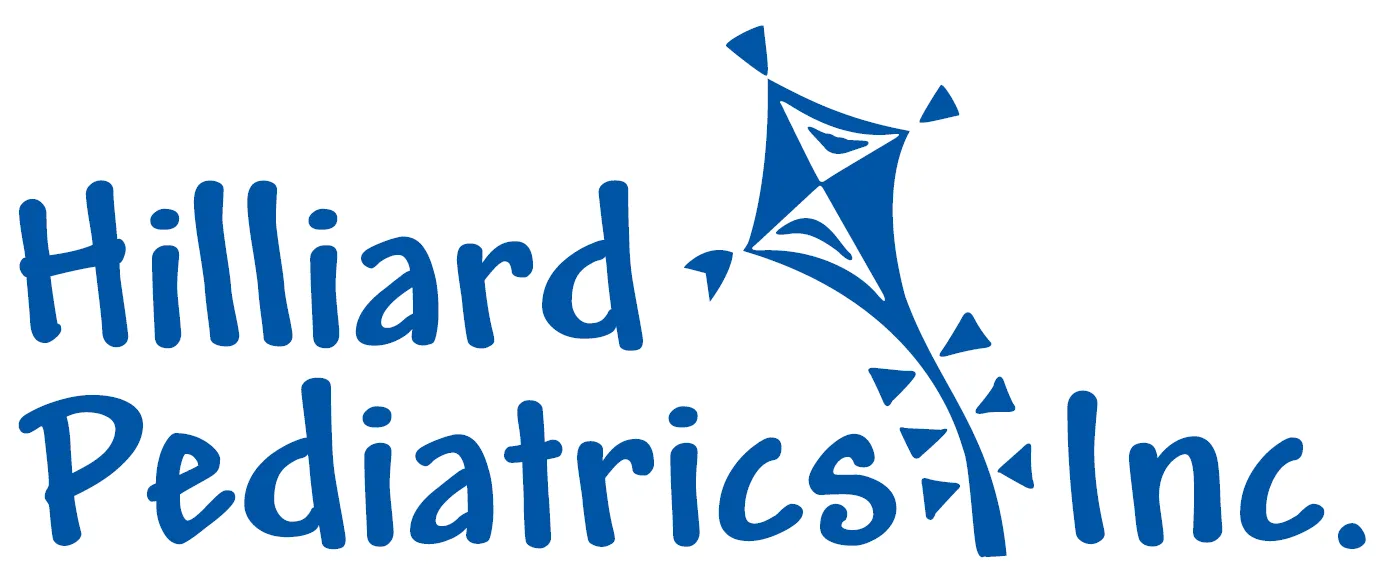Below is a list of common pediatric over-the-counter medications along with their dosages. Additionally, we have also included some common medications that might be given together. When in doubt as to whether you can give medications together, consult poison control at 1-800-222-1222.
Acetaminophen (Tylenol®)
Acetaminophen is a fever and pain-reducing medication. It can be used in children over 2 months of age. It should be taken no more than every 4 hours and dosage is always based on weight. Too much acetaminophen can be toxic, so keep medications stored safely away from children. Both infant's and children's acetaminophen are the same medication strength and can be used interchangeably. There is also a rectal (suppository) formulation for children not tolerating the oral medication. Acetaminophen is considered safe during breastfeeding.
| Weight | Children's Suspension 160mg/5mL | Chewable Tablets 160mg | Regular Tablets 325mg |
|---|---|---|---|
| Less than 12 lbs | 1.25 mL | -- | -- |
| 12-17 lbs | 2.5 mL | -- | -- |
| 18-23 lbs | 3.75 mL | -- | -- |
| 24-35 lbs | 5 mL | 1 tablet | -- |
| 36-47 lbs | 7.5 mL | 1.5 tablets | -- |
| 48-59 lbs | 10 mL | 2 tablets | -- |
| 60-71 lbs | 12.5 mL | 2.5 tablets | -- |
| 72-95 lbs | 15 mL | 3 tablets | 1 tablet |
| >95 lbs | -- | -- | 2 tablets |
Acetaminophen Suppositories
For children who are nauseous or vomiting and have a fever. Feverall® rectal suppositories are available over-the-counter to treat a fever. The dosing is every 4 hours.
| Age | Infant 80mg | Children's 120mg | Junior Strength 325mg |
|---|---|---|---|
| 3-11 months | 1 suppository | -- | -- |
| 12-35 months | 1 suppository | -- | -- |
| 3-5 years | -- | 1 suppository | -- |
| 6-12 years | -- | -- | 1 suppository |
Commonly Given Together: Acetaminophen (Tylenol®) and...
- Ibuprofen: Safe
- Allergy Medications (Zyrtec®, Claritin®, Benadryl®): Safe
- Most Antibiotics: Safe
- Cold Medications: Maybe not. Some cold medications contain aceteminophen and you should not give 2 medications which both contain this to avoid overdosing.
- Steroids (prednisolone, prednisone): Safe
- Prozac®, Zoloft®, Lexapro®: Safe
- ADHD Stimulant Medications: Safe
Ibuprofen (Motrin®, Advil®)
Ibuprofen is a non-steroidal anti-inflammatory drug (NSAID) which decreases pain and inflammation as well as reduces fevers in children over 6 months of age. It should be taken no more than every 6 hours and dosage is always based on weight. Too much ibuprofen can be toxic, so keep medications stored safely away from children. Infant's and children's ibuprofen are different strengths, and as such are dosed differently. Ibuprofen is considered safe during breastfeeding at typical doses.
| Weight | Infant Drops 50mg/1.25mL | Children's Suspension 100mg/5mL | Chewable Tablets 100mg | Regular Tablets 200mg |
|---|---|---|---|---|
| 12-17 lbs | 1 dropper / 1.25 mL | 2.5 mL | -- | -- |
| 18-23 lbs | 1.5 droppers / 1.875 mL | 3.75 mL | -- | |
| 24-35 lbs | 2 droppers / 2.5 mL | 5 mL | 1 tablet | -- |
| 36-47 lbs | -- | 7.5 mL | 1.5 tablet | -- |
| 48-59 lbs | -- | 10 mL | 2 tablets | 1 tablet |
| 60-71 lbs | -- | 12.5 mL | 2.5 tablets | 1 tablet |
| 72-95 lbs | -- | 15 mL | 3 tablets | 1.5 tablets |
| >95 lbs | -- | -- | -- | 2 tablets |
- Acetaminophen: Safe
- Allergy Medications (Zyrtec®, Claritin®, Benadryl®): Safe
- Most Antibiotics: Safe
- Cold Medications: Maybe not. Some cold medications contain ibuprofen and you should not give 2 medications which both contain this to avoid overdosing.
- Steroids (prednisolone, prednisone): Safe
- Prozac®, Zoloft®, Lexapro®: Safe
- ADHD Stimulant Medications: Safe
Combining Fever Reducers
If pain or fever-related discomfort persists despite giving one fever reducer, these two medications can be alternated every 3-4 hours. For instance, if Tylenol was given at noon and a fever is still present at 3pm, a dose of Motrin can be given. It is important to keep track of dosing to avoid overdose of either medication.
Zyrtec® (cetirizine) and Claritin® (loratadine)
Zyrtec and Claritin are newer antihistimine medications which can combat symptoms of mild allergic reactions, itching, and hives. They cause fewer side effects than prior antihistamines and are typically non-drowsy. These medications are typically dosed daily and are based on age.
| Age | Zyrtec (cetirizine) | Claritine (loratadine) |
|---|---|---|
| 6 mo - 2 years: | 2.5 mg daily (but we should probably discuss during business hours) | --- |
| 2 years - 5 years: | 2.5 mg daily up to 5mg daily | 5 mg daily |
| 6 years and older: | 5-10 mg daily | 5-10 mg daily |
Commonly Given Together: Zyrtec® (cetirizine) or Claritin® (loratadine) and...
- Acetaminophen or Ibuprofen: Safe
- Most Antibiotics: Safe
- Cold Medications: Maybe. Many cold medications contain an antihistamine and you probably don't need 2.
- Steroids (prednisolone, prednisone): Safe
- Prozac®, Zoloft®, Lexapro®: Safe
- ADHD Stimulant Medications: Safe
Diphenhydramine (Benadryl®)
Diphenhydramine is an antihistamine which can combat symptoms of mild allergic reactions, itching, and hives. It commonly causes children to be sleepy, but can also cause them to be more active or irritable. Because of potential side-effects, newer antihistamines such as Zyrtec® (cetirizine) or Claritin® (loratadine) are typically preferred when available.
Diphenhydramine can be given every 6-8 hours and is dosed based on weight. If a severe, life-threatening allergic reaction is occurring, epinephrine should always be given first and you should call 911.
| Age/Weight | Children's Liquid 12.5mg/5mL | Children's Chewables 12.5mg | Regular Tablets 25mg |
|---|---|---|---|
| 20-24 lbs | 2.5 mL | -- | -- |
| 25-49 lbs | 5 mL | 1 tablet | -- |
| 50-99 lbs | 5-10 mL | 1-2 tablets | 1 tablet |
| 100 lbs or more | 10 mL | 2-4 tablets | 1-2 tablets |
Cough and Cold Medications
We do not typically recommend cough and cold medications (Delsym®, Dimetapp®, Robitussin®, etc) because they are not very effective and can cause significant side effects. If you choose to trial one of these medications, your child should be at least 4 years of age and you should follow the directions on the packaging.

